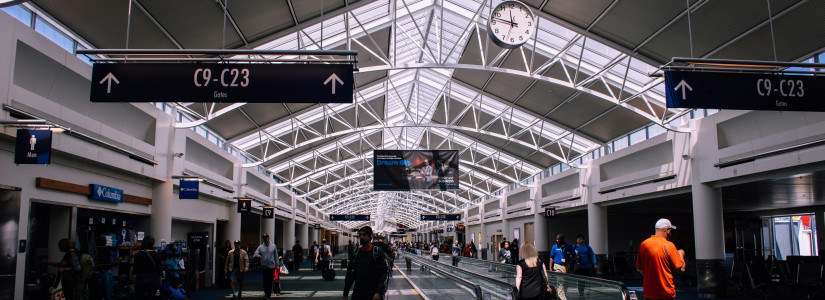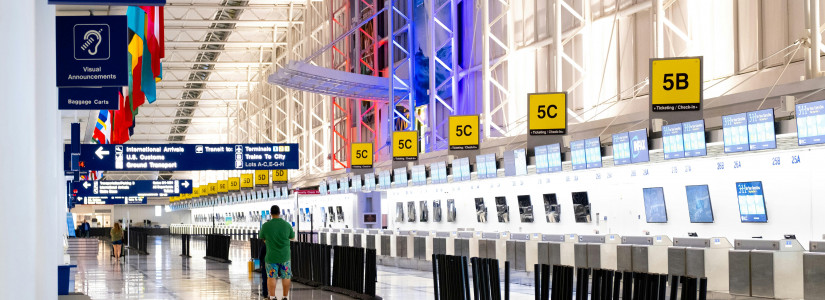Dealing with Visa Denials and Appeals: Legal Frameworks and Persuasive Strategies

Visa denials can be disheartening and frustrating, especially for individuals seeking to enter the U.S. for work, study, or family reunification.
However, understanding the legal frameworks surrounding visa applications and the appeals process can empower applicants to take effective action.
Here’s a detailed guide on dealing with visa denials and implementing persuasive strategies for a successful appeal.
Understanding Visa Denials
Visa denials can occur for various reasons, including incomplete documentation, failure to meet eligibility criteria, or issues related to public charge rules.
According to the U.S. Department of State, approximately 25% of nonimmigrant visa applications are denied annually.
Understanding the specific grounds for denial is crucial to addressing the issues and preparing a robust appeal.
Common Reasons for Visa Denial
-
Incomplete or Incorrect Documentation
Failing to submit required documents or providing incorrect information can lead to denial. -
Failure to Demonstrate Strong Ties to Home Country
Applicants must show that they have compelling reasons to return to their home country after their temporary stay in the U.S. -
Ineligibility under Immigration Laws
Certain legal barriers, such as previous immigration violations, can result in a denial. -
Concerns Over Public Charge
Applicants must prove they will not rely on public assistance during their stay. -
Criminal Background
A criminal record may lead to automatic disqualification depending on the nature of the offense.
The Appeals Process
If your visa application is denied, you have the right to appeal the decision. Here’s how to navigate the appeals process:
1. Review the Denial Notice
Carefully read the denial notice to understand the specific reasons for the rejection.
This document will guide your appeal strategy.
Ensure you know the applicable legal provisions cited in the denial, as this will be critical for your case.
2. Gather Supporting Evidence
Compile relevant evidence that addresses the reasons for the denial. This may include:
- New Documentation: Submit any additional documents that were missing or incomplete in your original application.
- Affidavits: Obtain statements from employers, family members, or community leaders affirming your ties to your home country or your purpose in the U.S.
- Legal Arguments: Prepare a concise argument referencing relevant immigration laws or policies that support your case.
3. File Your Appeal
Most visa denials can be appealed to the Administrative Appeals Office (AAO). Follow these steps:
- Complete the Required Forms: Fill out the appropriate appeal form, usually Form I-290B.
- Submit Your Appeal on Time: Ensure your appeal is filed within the designated time frame, typically 30 days from the date of the denial.
- Include a Cover Letter: Write a cover letter summarizing your appeal, the reasons for denial, and your argument for why the decision should be overturned.
4. Consider Legal Assistance
Hiring an immigration attorney can significantly enhance your chances of a successful appeal.
An attorney can help you navigate the complexities of immigration law, improve your application, and advocate on your behalf.
American Immigration Lawyers Association (AILA) is a useful resource for finding qualified immigration lawyers.
Persuasive Strategies for Appeals
To improve your chances of a successful appeal, consider implementing these persuasive strategies:
1. Clearly Address All Concerns
Ensure your appeal directly addresses each reason for denial. Present clear and compelling arguments that counter the concerns raised in the denial notice.
2. Utilize Expert Opinions
If applicable, seek expert opinions from immigration experts or professionals in relevant fields who can provide credibility to your appeal.
3. Highlight Positive Contributions
Emphasize how granting the visa would benefit both you and the U.S. Highlight any skills, education, or experiences that would contribute positively to American society.
4. Maintain Professionalism and Clarity
Your appeal should be well-organized, clear, and free of emotional language. Maintain a professional tone throughout, as this can enhance the credibility of your application.
Conclusion
Dealing with a visa denial can be challenging, but understanding the legal frameworks and having a well-prepared strategy can make a significant difference.
By carefully reviewing your denial, gathering compelling evidence, and employing persuasive techniques, you can increase your chances of a successful appeal.
Remember, persistence and clarity are key in navigating the complexities of U.S. immigration laws.
-
Subscribe to our Newsletter to receive updates and resources about immigration benefits
Related Articles
View all postsReady to get started?
Together, we'll turn your American dream into reality.
Your immigration journey is just a click away. Sign up for our newsletter to receive the latest updates, resources, and exclusive insights to aid your immigration journey. Let us be the guiding light to your new beginnings in the United States.
Subscribe









